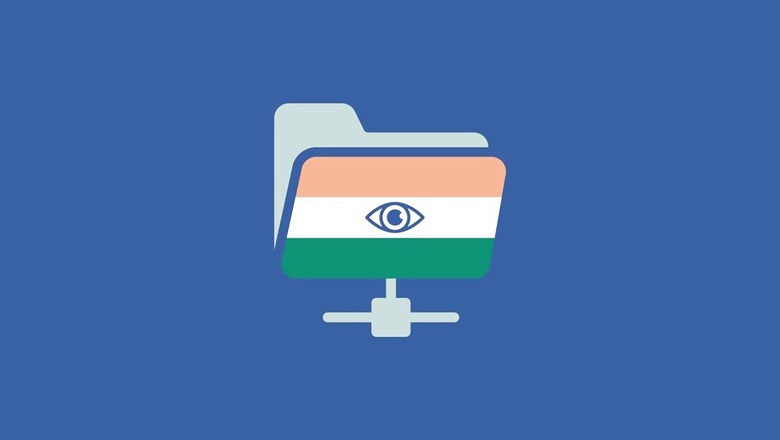
views
ExpressVPN, a popular VPN service, has shut shop in India on the basis of the new rules for VPN service providers. The company has announced that it is removing all India-based servers, after the government ordered all VPN providers to store users’ real names, IP addresses assigned to them, usage patterns, and other identifying data. The new VPN rules by the government will take effect from June 27, 2022.
WHAT IS EXPRESSVPN?
ExpressVPN is a well-known VPN (Virtual Private Network) service that is popular among Indian internet users. ExpressVPN, founded 13 years ago in 2009, is owned by Kape Technologies, a United Kingdom-based adware platform. ExpressVPN calls itself a privacy and security tool that encrypts users’ web traffic and masks their IP addresses.
ExpressVPN was founded in 2009 by Wharton School alumni Peter Burchhardt and Dan Pomerantz. The VPN provider is also a founding member of the VPN Trust Initiative, which is an advocacy group for online safety of internet users.
ALSO READ: ExpressVPN Removes Servers From India As It ‘Rejects’ New VPN Rules: What It Means
ExpressVPN was acquired by Kape Technologies in September 2021, where the parent company added ExpressVPN to its existing portfolio of other VPN services and antivirus solutions including Private Internet Access, CyberGhost and ZenMate; antivirus software maker Intego; and other cybersecurity tools.
ExpressVPN has apps for Windows, macOS, iOS, Android, Linux, and routers. ExpressVPN also features a Smart DNS feature called MediaStreamer, to add VPN capabilities to devices that do not support them, and a router app, allowing the VPN to be set up on a router, bypassing unsupported devices such as gaming consoles.
WHAT DOES AN INTERNET VPN SERVICE DO?
A VPN or Virtual Private Network is sort of a masking technique that enables your device to send and receive data over the internet as if it was connected to a private network. It is used in India because VPN provides Internet users with access to resources that can not be accessed on a public network and is typically used for remote work. Several times, a VPN is also used to access parts of the internet that may be banned or inaccessible in a user’s region.
ALSO READ: ‘Virtually No Privacy’: VPN Providers Unhappy with New CERT-In Directives, Contemplate Leaving India
VPNs cannot make online connections completely anonymous, but they can increase privacy and security. A VPN does this by hiding your IP address and redirects you to specifically configured remote servers that are run by VPN providers. This means that your internet provider or other third-party services like websites or apps can not see which websites you visit or what data you send or receive.
WHY IS EXPRESSVPN CLOSING INDIA SERVERS
ExpressVPN said that it is removing all India-based VPN servers due to a recent law in India that requires VPN providers to store user information for at least five years. The company, however, said that Indian users will still be able to connect to VPN servers that will give them Indian IP addresses and allow them access to the internet as if they were located in India. However, these are virtual servers located in Singapore and UK.
The company, in its statement, said that ExpressVPN refuses to participate in the Indian government’s attempt to limit Internet freedom. “As a company focused on protecting privacy and freedom of expression online, we will continue to fight to keep users connected to the open and free internet with privacy and security, no matter where they are located,” the company said.
It also said that ExpressVPN will never collect logs of user activity, including no logging of browsing history, traffic destination, data content, or DNS queries. It also says that the VPN provider never stores connection logs, outgoing VPN IP addresses, connection timestamps, or session durations. “Essentially, we do not store or collect any data that could identify an individual and their online activity,” the company said.
ALSO READ: New Rule Says VPN Providers, Crypto Exchanges Must Keep Customer Data for Five Years
WHAT IS THE NEW VPN RULE THAT YOU MUST KNOW
The Indian Computer Emergency Response Team (CERT-In) under the Ministry of Electronics and Information Technology in April issued a new directive that asks VPN providers to collect and store user data for up to five years. The reason given by CERT-In is that it requires the ability to investigate potential cybercrime.
Along with VPN providers’ data centers, cloud service providers, and cryptocurrency exchanges must register customers’ names, ownership patterns, contact information and the reason for which they are hiring these services, the report added.
The new guidelines will take effect on June 27, unless the compliance deadline is extended. The order’s overall goal is to ensure that CERT-in can respond to cyber incidents within six hours of their discovery.
As per the CERT-In, organisations must report data breaches, fake mobile apps, server infrastructure assaults, and even unlawful access to a user’s social media accounts under CERT-in. Additionally, organisations that fail to disclose the required information are subject to Section 70B (7) of the IT Act, which carries a prison sentence of up to one year.
Read all the Latest Tech News here




















Comments
0 comment